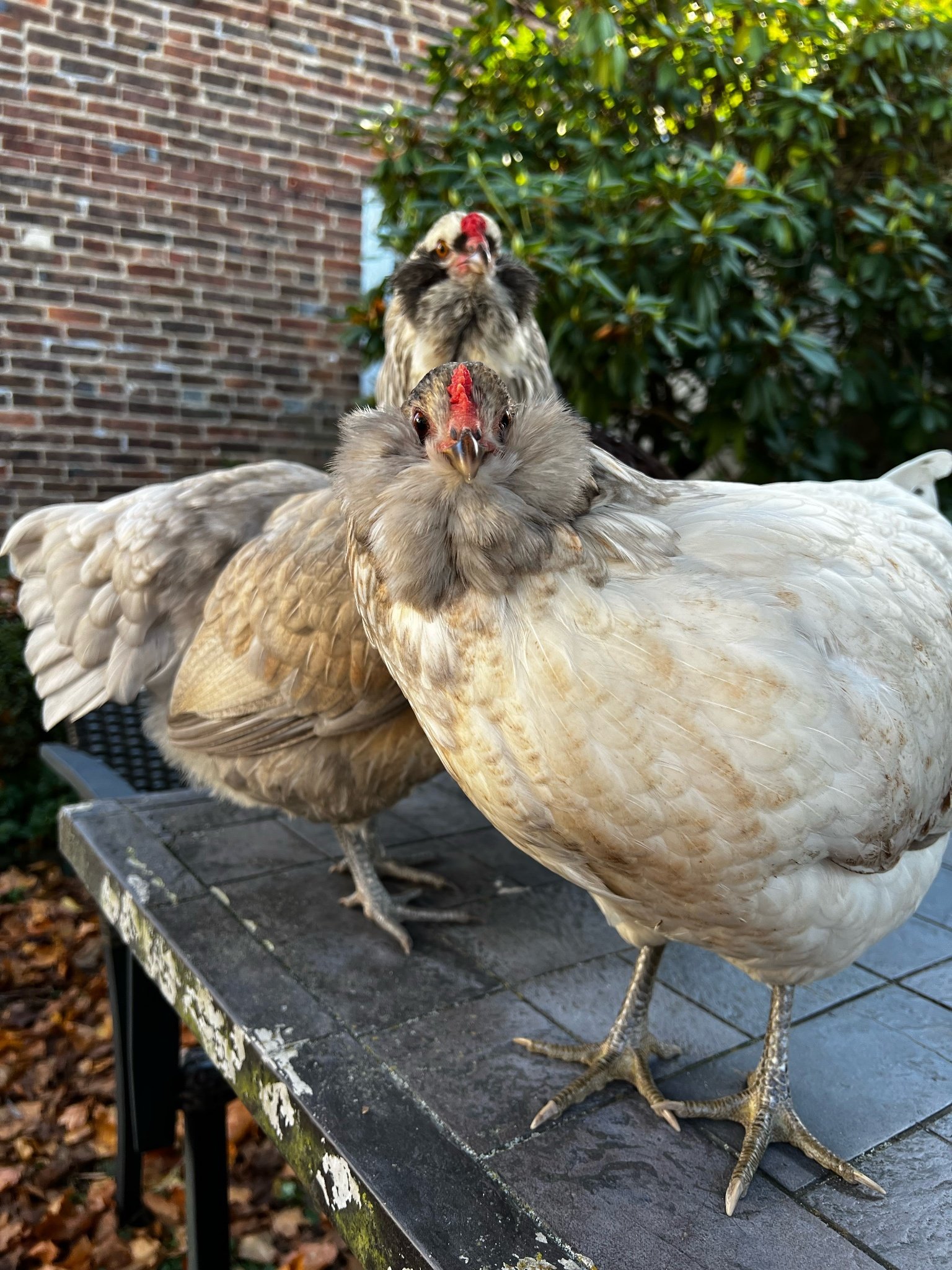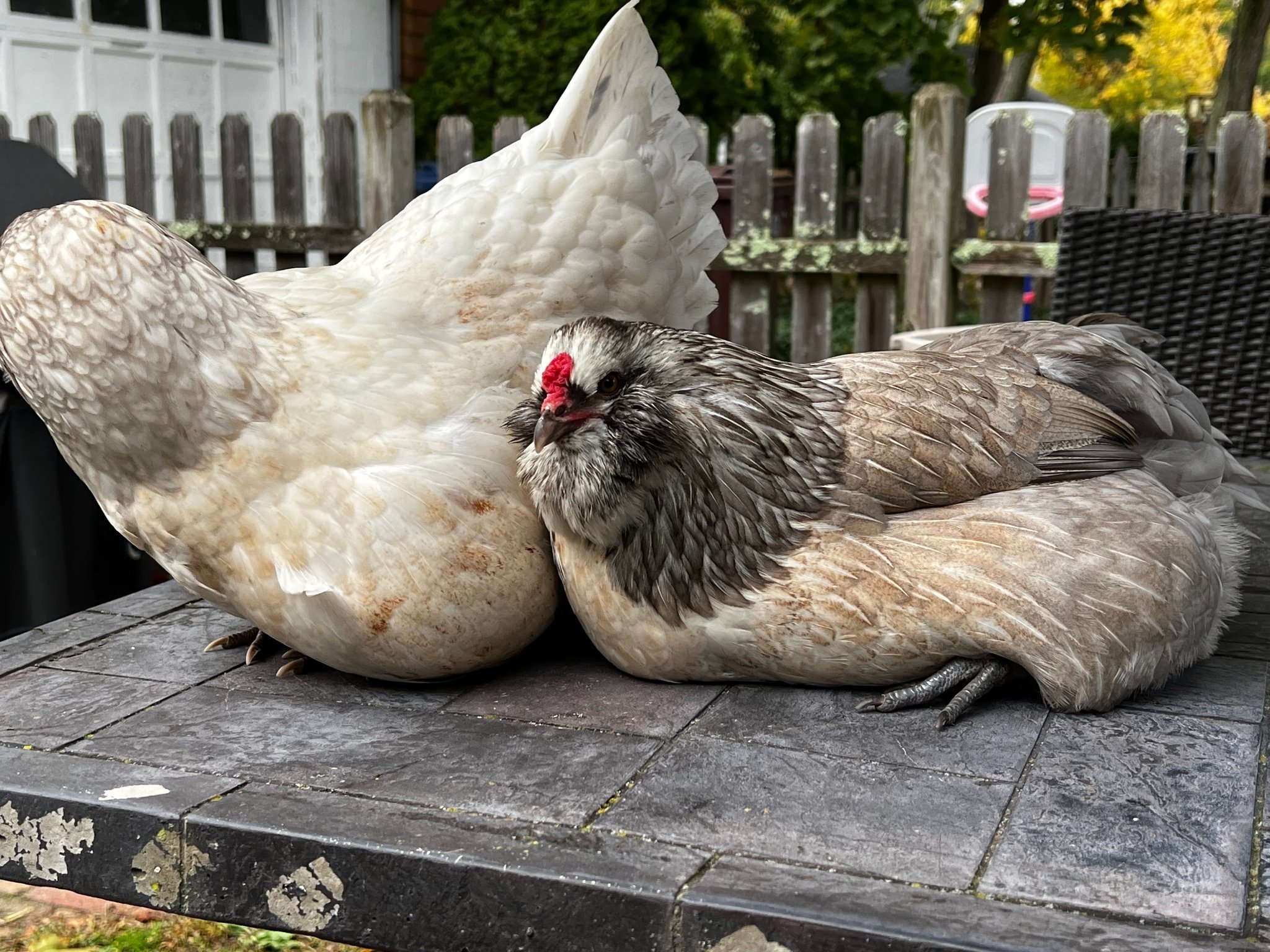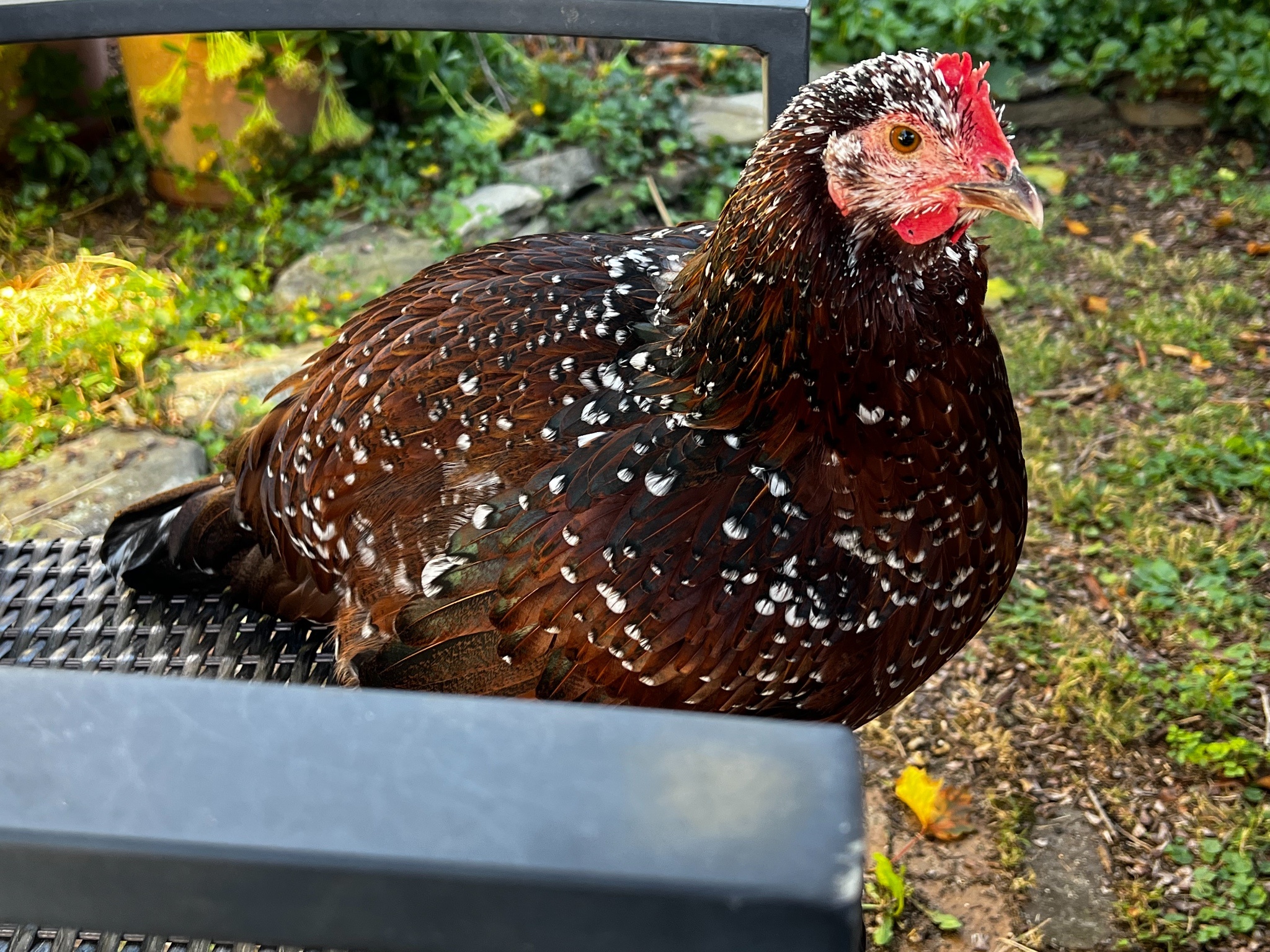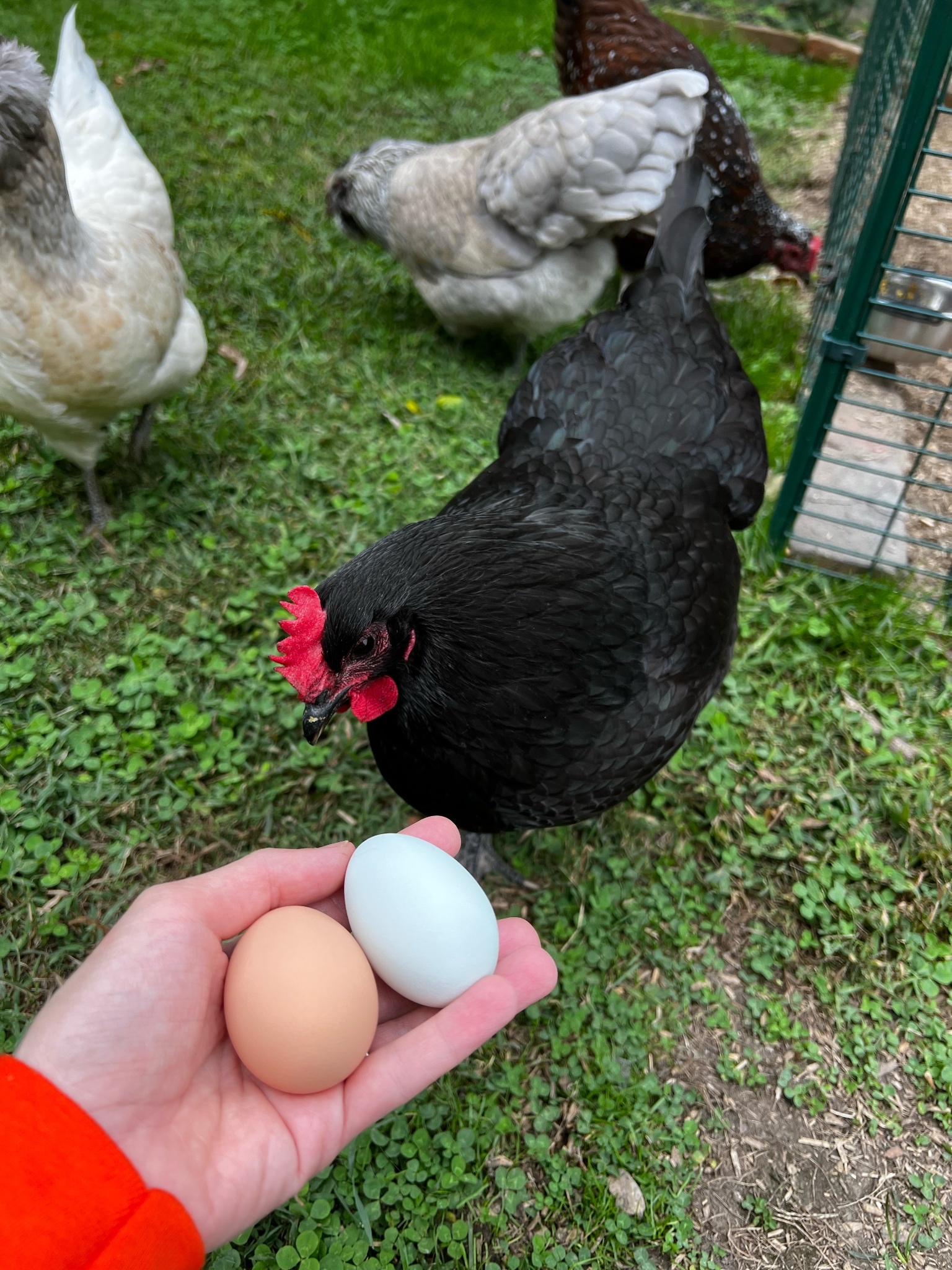BuddingGardener
Songster
Hi everyone!
I have a pet gecko, and for a routine vet appointment for the lizard at the exotic lizards and birds vet, I also brought in a chicken fecal sample to test for routine parasites -- it was definitely a squishy cecal poop, nice and fresh, that I brought in. I got a call back from the exotic vet that the chickens have a "protozoan infection" and I can either bring in my whole flock for a one time treatment or clean out the run/coop (??? I'm not sure we could clean the run enough to get rid of such a thing?) and see if they clear it on their own. Behavior has been fine in all of my hens. They were hatched on April 6th, 2022 of this past year and been acting like their happy clucky selves; I was mostly doing a preventive check. I didn't get exact information on what the protozoan was and google isn't really informative that *any* protozoan aside from Coccidiosis is a huge issue in chickens.
Has anyone experienced this before? Is there a compelling reason for me to round up my chickens and get them a one-time protozoan treatment, or since they appear and act healthy, should I let things be and just give the run as much of a clean as I can? I literally cannot find any problematic information about protozoans affecting chickens -- only the ones associated with cecal worms that would harm turkeys, but we don't keep turkeys. What would you do? Is there an over the counter method I should try instead?
For some extra info, I have four backyard chickens, two easter eggers, a black australorp, and a speckled sussex. Three of my chickens are laying, though laying has definitely slowed down to about 4 eggs a week per chicken. My fourth, the speckled sussex, hasn't started laying yet and I suspect she might hold out until spring with the way the days have shortened. I'm not sure if that's at all indicative of a problem. Let me know what you think, team....
Thanks for the help!
I have a pet gecko, and for a routine vet appointment for the lizard at the exotic lizards and birds vet, I also brought in a chicken fecal sample to test for routine parasites -- it was definitely a squishy cecal poop, nice and fresh, that I brought in. I got a call back from the exotic vet that the chickens have a "protozoan infection" and I can either bring in my whole flock for a one time treatment or clean out the run/coop (??? I'm not sure we could clean the run enough to get rid of such a thing?) and see if they clear it on their own. Behavior has been fine in all of my hens. They were hatched on April 6th, 2022 of this past year and been acting like their happy clucky selves; I was mostly doing a preventive check. I didn't get exact information on what the protozoan was and google isn't really informative that *any* protozoan aside from Coccidiosis is a huge issue in chickens.
Has anyone experienced this before? Is there a compelling reason for me to round up my chickens and get them a one-time protozoan treatment, or since they appear and act healthy, should I let things be and just give the run as much of a clean as I can? I literally cannot find any problematic information about protozoans affecting chickens -- only the ones associated with cecal worms that would harm turkeys, but we don't keep turkeys. What would you do? Is there an over the counter method I should try instead?
For some extra info, I have four backyard chickens, two easter eggers, a black australorp, and a speckled sussex. Three of my chickens are laying, though laying has definitely slowed down to about 4 eggs a week per chicken. My fourth, the speckled sussex, hasn't started laying yet and I suspect she might hold out until spring with the way the days have shortened. I'm not sure if that's at all indicative of a problem. Let me know what you think, team....
Thanks for the help!








